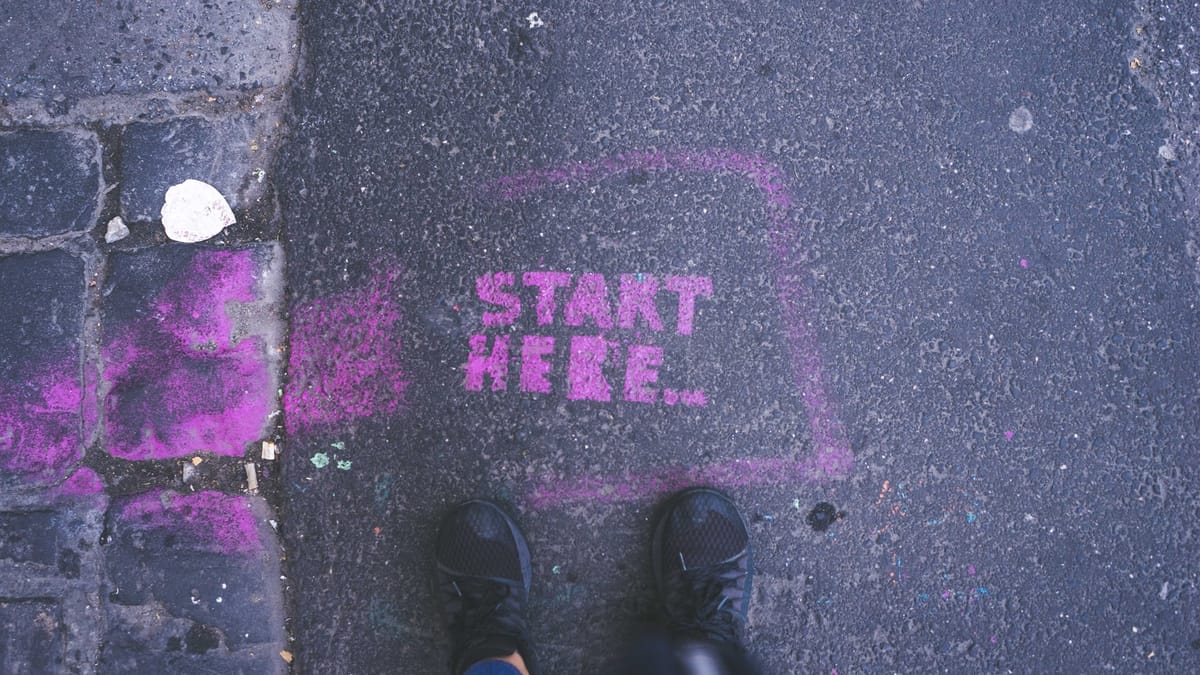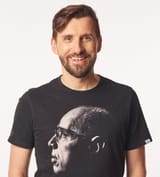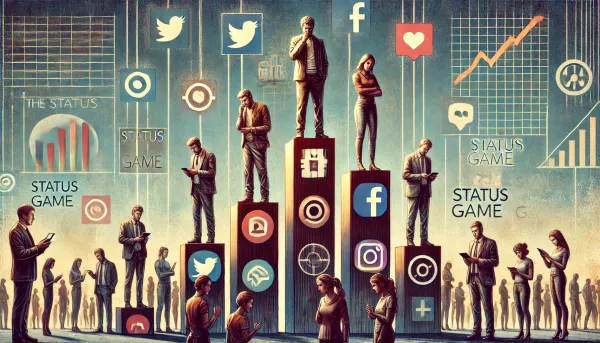Where would I start with building my work profile now?
Where to start career development at the moment? What actions would I take at the moment and where to invest? You asked I deliver. Sum-up of my thoughts when I would start, when re-starting my career.

Where would you start if you would be starting your career now?
It is a good question?
My post about career path and flow - My path to where I am now triggered some positive feedback (Thank you!) and also a couple of people reaching out to me to ask "what should I do"?
I don't feel competent enough to give career advice. I'm at the same place for 11 years now, and during this time, I haven't participated in the "job market" from the "being hired" perspective. I do have some thoughts and observation, and it is what shared with those who asked.
If people are asking, then probably there are more people interested in this topic. It calls for a post. Better - a series of posts.
I've split it into two (or maybe more in the future) separate posts. Those are:
- Where I would start (the one you are reading now)
- Career or lifestyle choice (the one you will read next week).
Maybe it will evolve into longer series, but now, let's look at these two viewpoints.
Why two posts? I think that your perspective will vary on your mileage in the career already. It looks different at the beginning and after a few years. I also believe that lifestyle choice is essential at the beginning; however, I also think it will be harder for me to explain it to someone who just freshly graduated and is out there to conquer the world.
Thought's in this post are based on a few discussions I had which started with questions like:
- What do you think I should do to get an internship?
- Where to invest my learning time to have the right skills for the future?
- What career path I should pursuit for next years?
These questions were coming from mostly younger people - graduated or after first jobs or a few years on the job. Some of them were not juniors - they had excellent skills and track record already. Why they asked it then? I think it is because what they still develop is "experience."
Disclaimer !!!
Those are my thoughts about it, with my career path behind me and based on my observations. Think about it for yourself, challenge what you read here and in other places!
I'm not YOU!
I come from the IT world, and I thought about it mostly from the IT point of view, but I think this applies to other industries.
With that ...
Where I would start right now?
If you haven't read it before, you may want to check the piece I wrote some time ago - You should not work for free!. It sum-up my point of view on current possibilities.
And let me say one thing - THE POSSIBILITIES ARE ENDLESS!
I know how it sounds :).
Think about it:
- You can do a primary education using Khan Academy
- You can do all the courses from MIT or Harvard online, with textbooks available for your own work
- You can do industry certification courses online
Until you want to get some official credentials, it doesn't cost you a penny in hard currency. It cost you your time and effort. Usually, in the beginning, it is what you have in plenty or at least in some amount.
As I heard on the podcast last week: There is no person who can not wake up a half an hour earlier?
If it isn't clear so far, I will not start looking for a job or internship immediately (and for sure not for free), but I would work on my skills and credentials for a bit on my own.
With a bit of visibility and work, did I look on the market ... or not (depends how you would work out the pieces so far when it comes to income and so on).
Here are FOUR things I put together when I thought about developing from scratch, with my current perspective and knowledge.
#1 - Work on your profiles
I don't think about the party pictures on Instagram or movies on TikTok and pursuit an online media career (I think that long term it is one of the worst choices you can make).
Decide what your places will be and start to work on them as early as possible. Keep on working on them regularly and think about it as a long term investment.
Whatever you will choose as your place:
- Put your name on it, full name not "XY A-11 CrYYpey Jar" acronym. You work on your name from the beginning
- Good picture which doesn't' have to be formal help
- It is essential - State where you are and what you work on clearly. You don't have to pretend to be an expert if you are not one yet!
- Let people know where you can help them, and what they can expect from you.
Do it consistently across all of your profiles. You don't want to be one person on Twitter and others on LinkedIn.
Make sure you get back to those profiles once in a while, and you update them. You will change, and it has to reflect it.
#2 - Decide what you want to be known for. Be consistent.
It is OK to try different things, especially early in your career. Saying that - throwing yourself in a new framework every week will not necessarily help you over a long time.
Pick your topic and stick to it for some time.
What topic to pick? It is a separate discussion, and we will not have it here.
Whatever you will pick - document what you are doing across your profiles. And be frank about it that you are learning. It builds your portfolio and credibility.
Put out there summaries regularly:
- What you have done
- What you have learned and decided to pursue further or drop
- What sources you have used
If you decide to pursue something else - put up a note why you did it and how this new thing connects (or not) to the old one.
Document it. People will follow, but also it will show your development path to others.
#3 - Reach out to people in and outside your field and ask questions
I think it is the most underrated option you have out there. There are plenty of people writing about your area and sharing it at the moment. They have other people who are discussing it with them. It is the best place to tap into their minds.
Look what are the active people with knowledge in your field, follow them. Participate in the threads and under the blogs/articles/videos.
Don't be afraid to ask questions.
There are no stupid questions. You are learning. You might not get the response or not get it timely. Respect that.
No one must respond to you! Nor meet on your time or agenda
Possibility to ask questions directly to such people and get in touch with them is a gift you have. It is not something given to you for granted. Respect that, and you will see that people will give back their time and knowledge for you (as this post :)).
Don't treat it as a replacement to Google Search. You can find answers to technical things and details in Google, blogs, and on StackOverflow. Ask them about their reasoning, experience, opinion, directions they are heading. Ask about things they say - why they have done it this way? Why do they learn this thing, not another? What have they done in the past?
I think that ability to ask people on an open internet and connect with them is one of the most underrated opportunities to develop at the moment.
Give back - share what you've learned, summarized, and distilled for others (do blog, note, your own post with question and answer).
#4 - Get some credits and experience on your own
It is hard at the beginning, but if you start early, you can do it even before your first job interview.
Build your profile with code or whatever you work on. Then build your profile on freelance sites - UpWork or similar places. Make sure to stand out there. How? It is the next profile to develop and leverage what you already have learned and built:
- State clearly what you can do and how?
- Pick the area where there might be less competition
- Show of your portfolio
Do your pet project and build it. Connect with other people doing pet projects. Do not do a pet project to show off your technical skills. Try to build it around some business or people's problems. Document it clearly - I do it because there is such and such problem I want to solve. There are plenty of people trying to learn, React, or other frameworks, but they are not that appealing. It is why we have online courses.
It doesn't have to be a pet project. Some people are organizing challenges online (to build something or work in a collective way of solving problems), which spans over a longer time and is a great place to build your portfolio with others.
Those investments over time will give you a portfolio and will build credibility.
What is the goal in all of it?
Why is it not a list of solid steps to build a career of developer/engineer/put what you like here?
When I think about it from the perspective and look at how the world evolved, especially in recent months (I think a lot of it is going to stay with us), I would not pursue a specific career path from the beginning.
What I would do is to make sure I build for yourself OPTIONS!
And these steps are things you can do with no up-front financial investment, which contributes to this process and let you learn something. The options might play out differently, but you would not want to not have it.
On the solid skills side in IT, I think that what allows people to stand out is to be move versatile and have basics from different domains. Skills I would develop in some capacity from the beginning now would be:
- Data analytics
- Security
independently from the core of what would be my interest.
What I also recommend you to start to think early on, is softer side skills and working with people. You can start with my list of Books for younger "me", but don't limit yourself to it. Ask others what they would recommend to you!
As I wrote at the beginning - it is a first in a series of two posts. The other one will be focused on a more different angle. I can summarize it in the "What Now?" question.
Let me know what do you think about this list. Do you have your own thoughts from your career already? You see something working for you or others?
Comments and my e-mail are open :).




